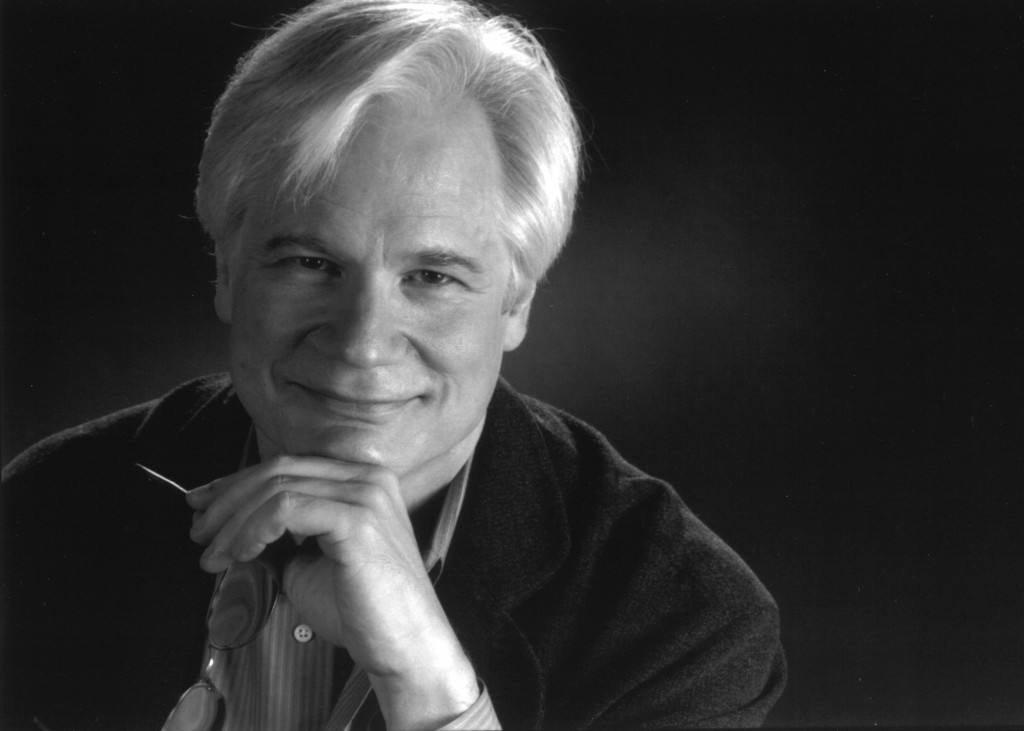Hoose, Cantata Singers find joy in seasonal rarities

Most choral ensembles use the holidays to revisit Christmas canon — Bach, Handel, Britten, Berlioz, et. al. For Boston’s Cantata Singers it’s a time for works that are less known but no less apt to the season.
On Sunday afternoon at United Parish in Brookline, the ensemble and conductor David Hoose found their sense of reflection and remembrance in offerings from British composers, some more celebrated (Holst, Elgar) than others (Lennox Berkeley, Ivor Gurney).
The discovery of the afternoon was Gerald Finzi’s In terra pax. One of the composer’s final works, this cantata in miniature offers a poignant telling of the Christmas story. It is set to an excerpt from poet Robert Bridges’s Noel: Christmas Eve, 1913, in which a lonely wanderer muses on the shepherds who bore witness to the birth of Christ. In Finzi’s musical adaptation, dark lyrical passages suddenly erupt into joyous phrases as angels appear, but the work ends with the wanderer contemplating peace and serenity. For the pacifist Finzi, the Christmas season was ultimately a time of silence and solace.
Sunday’s performance featured Hoose’s own chamber reduction of Finzi’s large-scale orchestral version. Yet the small forces nonetheless managed to convey all of beauty and pastoral grandeur of the original.
Finzi’s music involves a gentle play between darkness and light, where modally inflected harmonies support rich melodic lines. Hoose’s sweeping direction revealed all its hidden radiance. The eighteen-member choir sang with assurance in its featured moments: Bass-baritone Mark Andrew Cleveland rendered the part of the wanderer with inviting warmth, while soprano Alexandra Whitfield made for a sterling complement as the angel, her bright-toned lines capturing the joy of the angel’s arrival. Throughout, the orchestra played with sensitivity to give this neglected work—and Hoose’s convincing orchestration — bold advocacy.
Other works on Sunday’s program explored feelings of consolation. Lennox Berkeley’s In Wintertime offered a warm-hearted telling of the manger story. Though the composer’s music often reflected the influence of Stravinsky, In Wintertime shows Berkeley looking to a more distant past and drawing upon the simple harmonies of choral part-songs. Hoose led a performance well attuned to the music’s intimacy.
Hoose’s reading of Edward Elgar’s Ave maris stella revealed a sense of the long line, the melodies flowering into gleaming forte passages at work’s conclusion. In contrast, No Sad Thought His Soul Affright, from Ralph Vaughan Williams’s Hodie, took on a haunting distance as Hoose guided the singers through the composer’s colorful harmonies.
Gustav Holst’s arrangement of the Personent Hodie from Piae cantiones featured the singers in more exuberant moments. There is no rose of swych vertu, an anonymous 15th century carol, made for a delicate departure, the music showcasing the ensemble in resonant phrases and a prevailing sense of adoration.
The most arresting work from this set was Ivor Gurney’s Carol of the Skiddaw Yowes, In this folk-inflected score, set to Hoose’s own orchestration, soprano Felicity Salmon lofted a line that flowered into ringing high notes while the orchestra supported her with plush accompaniment.
It wasn’t all rarities on Sunday. No score captures the mystery of Christmas quite like Benjamin Britten’s A Ceremony of Carols, and under Hoose’s careful guidance, ten sopranos and altos delivered a performance of refreshing tenderness and verve.
Hoose drew attention to every nuance in phrasing. The opening Procession took on the gleaming sonority and innocence of a boy’s choir as the conductor shaped the chant with congenial flow. The women charted the work’s tightly woven canons with precision and clarity. “Wolcum Yole!” bounded; “This Little Babe” coursed vibrantly. So too did the “Deo Gracias,” a carol that offers thanks for Adam’s fall.
Other carols of the set featured fine soloists drawn from the choir’s ranks. Amy Lieberman’s rich mezzo-soprano made for a yearning rendition of “That yongë child.” Soprano Angelynne Hinson floated a warm-toned “Balulalow,” and soprano Janet Ross and mezzo-soprano Molly McGuire made for a pristine duet in the “Spring Carol.”
Throughout, harpist Franziska Huhn supplied elegant accompaniment, her featured solo in the interlude complementing the singers with golden sonorities.
A selection of works by William Byrd rounded out the program. Hoose found both an understated serenity and clear direction in the composer’s O magnum mysterium, the melodies coalescing into stinging dissonances before resolving. Sunday’s performance of Byrd’s A Virgin’s Womb fully captured a seasonal enthusiasm. Alto Jennifer Webb sang her solo line with joy and conviction, answered by Whitfield, McGuire, Lisa Lynch, and Bonnie Gleason with a beaming “Rejoice.”
Hoose’s orchestration of Byrd’s Fantasia in G for strings and organ brought to life the rich contrapuntal lines of the original harpsichord version. Following the conductor’s smooth gestures, the strings rendered the music with terpsichorean flair while Barbara Bruns’s harmonies on the organ supplied depth and gravity.
For an encore, Hoose led the performers in his own orchestration of “The Wexford Carol,” its contemplative tones, in their own way, conveying a sense of exultation.
The Cantata Singers will perform music by Ives, Copland, Fine, and Wyner 8 p.m. January 24, 2020 at Jordan Hall. cantatasingers.org
Posted in Performances